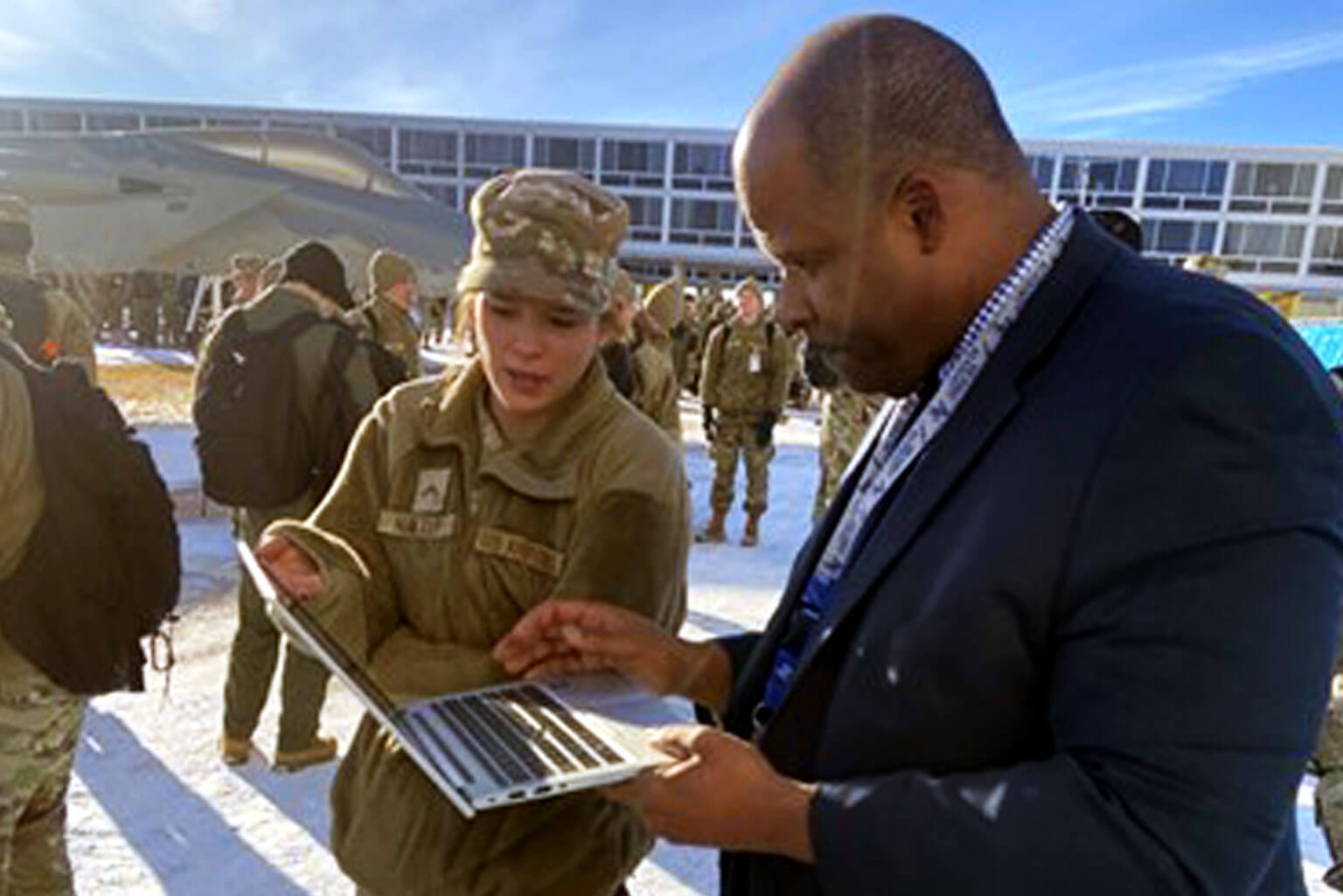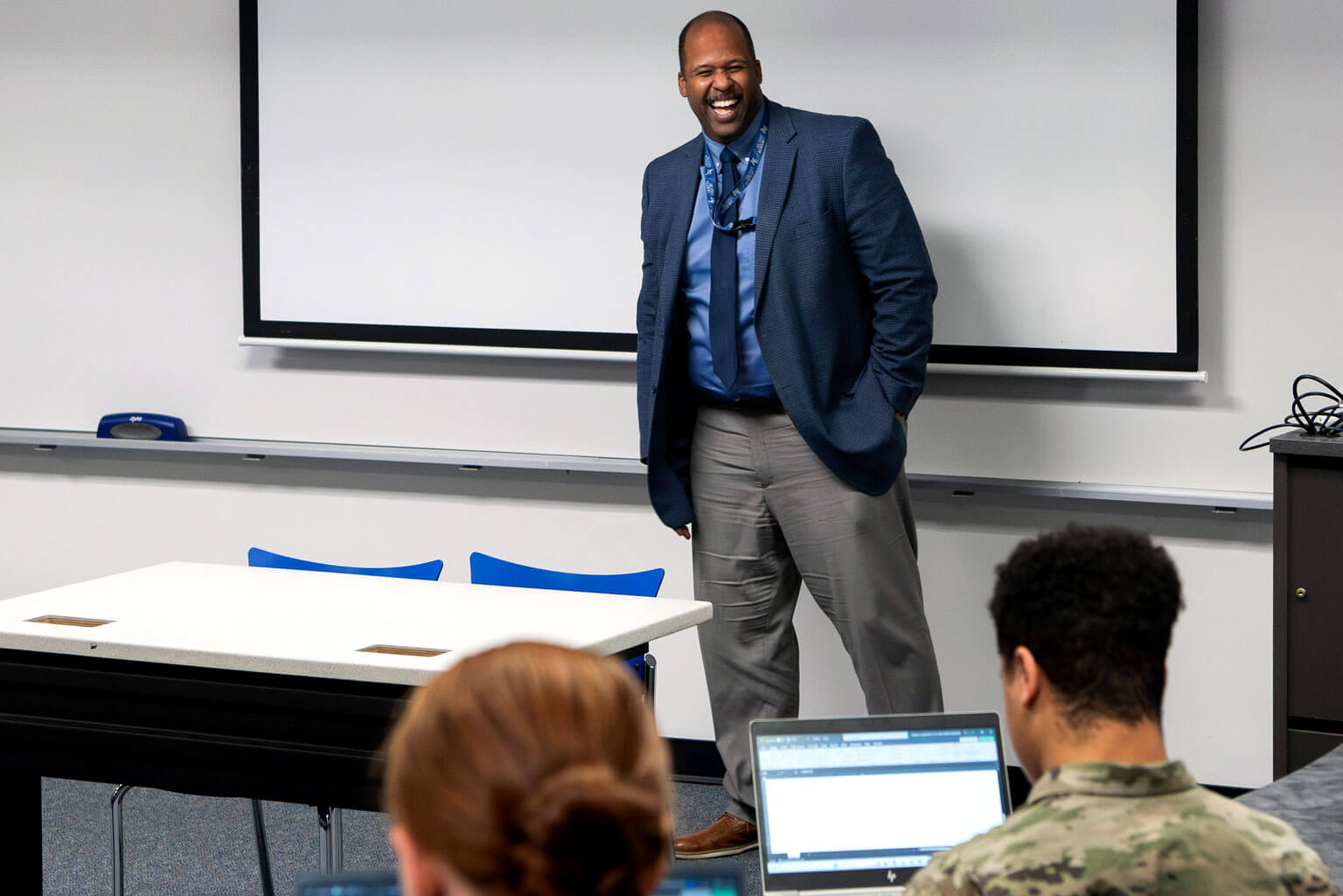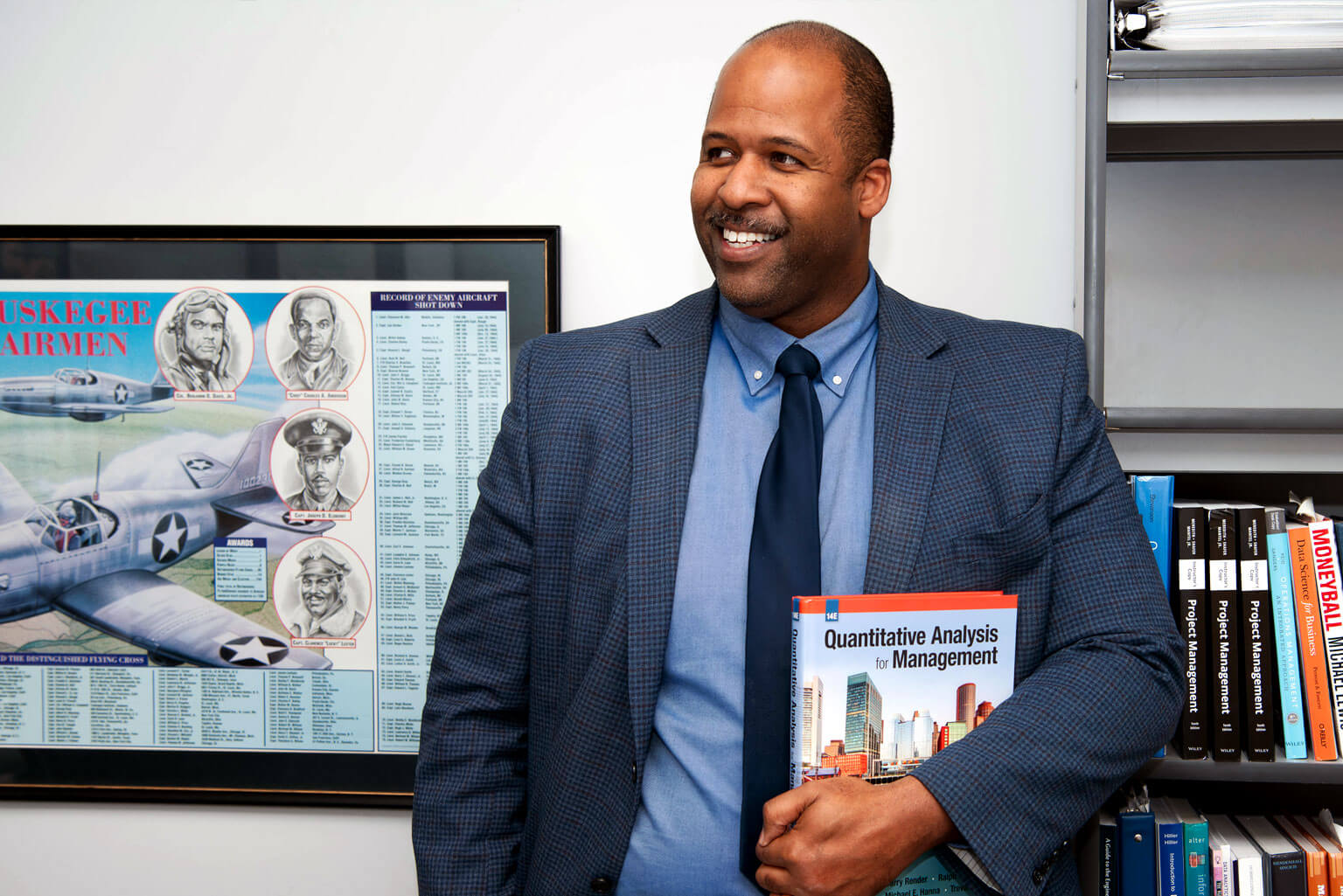Former navigator guides cadets on path to success
 Dr. Eric Tucker, U.S. Air Force Academy associate professor of management, continues teaching after a fire alarm interrupted his class on Jan. 16, 2024, at U.S. Air Force Academy, Colorado. His colleague, Dr. Steve Green, took the photo in admiration of Tucker’s dedication to teaching in sub-zero temperatures. (Courtesy photo)
Dr. Eric Tucker, U.S. Air Force Academy associate professor of management, continues teaching after a fire alarm interrupted his class on Jan. 16, 2024, at U.S. Air Force Academy, Colorado. His colleague, Dr. Steve Green, took the photo in admiration of Tucker’s dedication to teaching in sub-zero temperatures. (Courtesy photo)
By Katherine Spessa
U.S. Air Force Academy Strategic Communications
U.S. AIR FORCE ACADEMY, Colo. – Dr. Eric Tucker is the kind of professor who makes cadets “lean forward when he speaks,” according to Col. Troy Harting, U.S. Air Force Academy Management Department head.
Tucker started his career as a navigator following his own graduation from the Air Force Academy in 1994. He now serves his alma mater as a management associate professor.
Tucker’s aircrew experience gives him immediate credibility with his students, which he then builds upon with his acumen as a teacher.
“He is our unquestioned expert in the scholarship of teaching and learning,” said Harting.
Teaching, service, research
Tucker defines his purpose at the Academy as teaching, service and research.
“Teaching is my favorite,” Tucker says, grinning.
 Dr. Eric Tucker laughs with cadets during a class Feb. 20, 2024 at the U.S. Air Force Academy, Colorado. (U.S. Air Force photo by Rayna Grace)
Dr. Eric Tucker laughs with cadets during a class Feb. 20, 2024 at the U.S. Air Force Academy, Colorado. (U.S. Air Force photo by Rayna Grace)
Rather than a typical classroom lecture with its requisite PowerPoint slides, Tucker uses each class as an opportunity to conduct research to improve his teaching method and that of his colleagues.
“He’s done things years before anyone else was thinking of them,” said Harting. “He distills the things he learns from it and presents them to the faculty. He is always on the edge of trying things, and we get to be the lucky beneficiaries to say, ‘That was a neat idea.’”
“The Air Force Academy is really good about allowing us to do research in our discipline, but also do research to improve our teaching,” agreed Tucker. “That’s what our main goal is to help the cadets learn and produce the best officers you can.”
Primary among Tucker’s methods is what he calls a classroom response system. It gives a voice to cadets who may not be vocal in class under normal circumstances and enables Tucker to evaluate all his students rather than just a small group.
“Each class is an opportunity for data collection,” said Tucker. “And in that way, you can learn about your students, learn how to teach your students better and try to help them get more out of class.”
 Dr. Eric Tucker poses in his office Feb. 20, 2024 at the U.S. Air Force Academy, Colorado. (U.S. Air Force photo by Rayna Grace)
Dr. Eric Tucker poses in his office Feb. 20, 2024 at the U.S. Air Force Academy, Colorado. (U.S. Air Force photo by Rayna Grace)
Tucker guides students through self-reflection
In addition to Tucker getting real-time data on the student’s comprehension, the cadets are better able to determine their own understanding. He tries to help them transition from high school and its clearly delineated grades and assessments, to college, where each department has a different assessment system. That, according to Tucker, can leave cadets uncertain of where they stand but also prepares them for life after the Academy.
“The more self-awareness that we can help generate in our learners, the better,” said Tucker. “The first part of being a lifelong learner is accurately assessing where you are and where you have gaps.”
Tucker says this will serve them well throughout their careers in the operational Air Force or Space Force.
“As an officer, you may not get lots of feedback outside of the training environment,” he said. “You have to be able to self-assess. You have to be able to evaluate, ‘What was the result of my approach? How will I adjust and become better at that?’ This teaching method develops that ability.”
Tucker compared it to an experience he had while still serving as a C-130 Globemaster navigator before becoming a professor. He and his fellow aircrew members were crossing the Atlantic to Europe, with limited navigational references and without a working autopilot feature. The weather made it difficult to stay on course and at altitude. Tucker called it a “worst-case scenario.”
“I think of that when I think of how we teach our cadets,” said Tucker. “We don’t know what’s going to happen, but we want them to be prepared. We want them to have the right techniques and approaches to be ready for anything.”